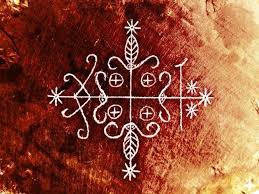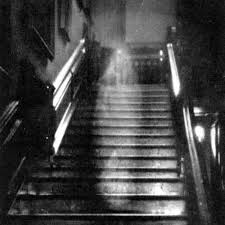
Possession, Part III–Riding with the Loa: Voudou’s Benign Possession
In western religion, the concept of possession is nearly always a bad thing—an innocent person is possessed by a demon and forced to do and say terrible things, while the demon attacks them in the battle for their soul. This has been seared into our minds by some religious texts, by news stories, by ghost-hunting TV shows, as well as novels and film. Possession, to us, is Linda Blair levitating and saying rude things about someone’s mom. It’s a ghost hunter walking around blank-eyed and saying strange, unintelligible things. It’s even at the heart of a handful of dark comedies, like Ava’s Possessions.
However, just because western culture says something, that doesn’t necessarily make it so. Several religious practices throughout the world incorporate possession into their rituals and ceremonies. Animistic religions often find a shaman either possessed by or communicating with the spirits. Some trance mediums from the spiritualist movement allow spirits of the deceased to speak directly through them. And then there is voudou (sometimes voudoun or voodoo), practiced in slightly different ways across the Caribbean, as well as countries like Brazil and even in New Orleans, Louisiana, in the USA.
In voudou, the pantheon isn’t one of gods, but rather, spirits created by the gods to shepherd mankind. These spirits have names like Papa Legba (keeper of the keys to the spirit world) and Mama Erzulia (the mother goddess of beauty). These spirits are referred to as the ‘Loa’, and they play an active part in our everyday lives. Some are benign, others are a little sinister, still others are a bit rough around the edges. However, they all play their part in the voudou religion.
At a voudou ceremony, during the ritual’s chanting and dancing, the priest or priestess calls upon certain loas to come to them. Soon, a loa descends, entering the body of a member of the congregation. The loa, while possessing the worshiper, then communicates with the congregation.
In a 2004 article for National Geographic, Sharon Guynup writes “It is an honor to be entered and “ridden” by a Loa, or spirit. In Haiti these rituals are commonplace: Voodoo is the dominant religion.” We can see that, in voudou, possession by the loa is sought after and welcomed by the practitioners of the religion.
When the loa communicate, they provide “prophecies, advice, or warnings while the believer is possessed. Other messages are sent through the priest or priestess, or sometimes come later in dreams.”(Guynup) Although they are in possession of the adherent’s body during the ceremony, the loa’s intention is to assist and help the members that are present.
However, the relationship isn’t one-sided. The loa, as any spirit would, does receive something in return for their help. According to Dr. Bob Corbett of Webster University, “these disembodied spirits are believed to become tired and worn down—and rely on humans to “feed” them in periodic rituals, including sacrifices.”It’s not the killing of the animals that matters…It’s the transfer of life energy back to the Loa.” (Guynup)
The symbiotic relationship between the practitioners of voudou and the loa is the very definition of benign possession. The loa is summoned, he or she possesses a body, meaningful assistance is provided, and the loa then relinquishes the body. In return, the loa receives life energy to sustain them.
Western possession can be seen as akin to invasion—the demon takes hostile hold of its victim and refuses to leave. Voudou possession, then can be compared to that of a guest…enjoying its time in the body, but then freely departing, leaving gifts of knowledge and assistance behind.
The cynic would say that possession doesn’t exist, that the cultural differences show that people believe as they choose. However, if we accept the possibility that entities exist that can take control of a living body, we must ask ourselves if the differences are merely cultural, or if a person’s belief system dictates what kind of entity the person attracts.
Nonetheless, ‘riding with the loa’ shows that possession, like so many other things, can sometimes work for the possessed instead of against them.
Sources: The Encyclopedia Britannica (https://www.britannica.com/topic/lwa-Vodou )
National Geographic (https://www.nationalgeographic.com/news/2004/7/haiti-ancient-traditions-voodoo/)
Uncommon Caribbean (https://www.uncommoncaribbean.com/haiti/i-went-to-a-vodou-ceremony-in-haiti/)



One Comment
MaryE Young
Thank you. I learned something new today.